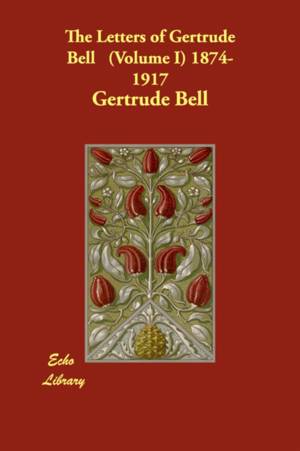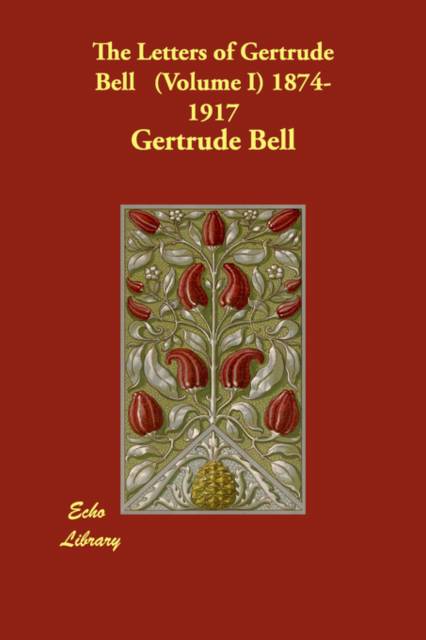
- Afhalen na 1 uur in een winkel met voorraad
- Gratis thuislevering in België vanaf € 30
- Ruim aanbod met 7 miljoen producten
- Afhalen na 1 uur in een winkel met voorraad
- Gratis thuislevering in België vanaf € 30
- Ruim aanbod met 7 miljoen producten
Zoeken
€ 16,95
+ 33 punten
Omschrijving
Gertrude Bell (1868-1926) was an English writer, traveller, political officer, administrator and archaeologist who explored, mapped, and became highly influential to British imperial policy-making due to her knowledge and contacts built up through extensive travels in Greater Syria, Mesopotamia, Asia Minor, and Arabia. She played a major role in establishing and helping administer the modern state of Iraq, using her unique perspective from her travels and relations with tribal leaders throughout the Middle East. From an early age she displayed a thirst for adventure and her family's wealth ensured her education and enabled her travels. After gaining a first class honours degree in Modern History from Lady Margaret Hall, Oxford, she travelled to Persia in 1893 to visit her uncle, Sir Frank Lascelles, who was British minister in Tehran, and described her journey in Persian Pictures (1894). Over the next decade she travelled around the world, mountaineering in Switzerland, and developing a passion for archaeology and languages, soon becoming fluent in Arabic, Persian, French and German, with a knowledge of Italian and the Ottoman languages. Her observations on the Middle East were published in The Desert and the Sown (1907). At the outbreak of WWI, Bell's request for a Middle East posting was initially denied but she was later asked by British Intelligence to get soldiers through the deserts. In 1915 she and T E Lawrence were assigned to Army Intelligence HQ in Cairo for war service. Bell was summoned to Baghdad in 1917 and given the title Oriental Secretary, remaining an integral part of the administration of Iraq throughout the 1920s. In 1927, a year after Bell's death, her stepmother Florence Bell published two volumes of Gertrude Bell's collected correspondence. Volume 1 covers the period 1874-1917.
Specificaties
Betrokkenen
- Auteur(s):
- Uitgeverij:
Inhoud
- Aantal bladzijden:
- 268
- Taal:
- Engels
Eigenschappen
- Productcode (EAN):
- 9781406800524
- Verschijningsdatum:
- 22/08/2006
- Uitvoering:
- Paperback
- Formaat:
- Trade paperback (VS)
- Afmetingen:
- 152 mm x 229 mm
- Gewicht:
- 394 g

Alleen bij Standaard Boekhandel
+ 33 punten op je klantenkaart van Standaard Boekhandel
Beoordelingen
We publiceren alleen reviews die voldoen aan de voorwaarden voor reviews. Bekijk onze voorwaarden voor reviews.











